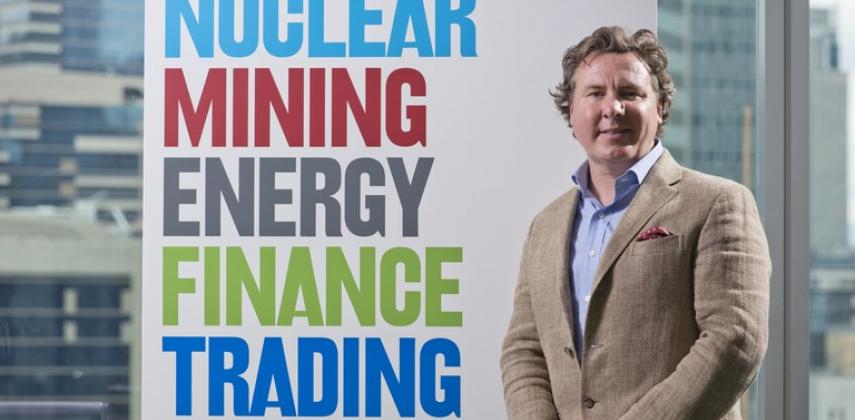David Spencer-Percival is adding 40 staff at Spencer Ogden to drill into China’s energy sector
China’s continuing ascent as a producer and consumer of energy can be seen as both inevitable and inexorable. To maintain its current economic progress, the country is committed to investing in the sources of power needed to drive industry and expansion. The effects of this are having a tangible impact on even the furthest reaches of the sector.
For instance, mainland demand for oil is affecting not just prices, but also exploration plans, drilling, supply lines and international relations. China’s concerted move towards renewables, such as wind and solar power, is serving as an example for countries which have been slower to act. In other areas – ranging from gas and nuclear to loans and trade financing – companies all over the world are openly angling for a larger share of the burgeoning China market.
All this is creating new demand for high-calibre executives with relevant expertise – but they are not always easy to find. Stepping into the breach, though, is specialist recruitment firm Spencer Ogden, which recently set up in Hong Kong. This added a ninth office to its international network which already includes operations in London, Houston, Singapore and Dubai.
“We mainly deal with large organisations which are used to people transferring between regions, so we very quickly realised the need to be global,” says David Spencer-Percival, CEO of Spencer Ogden. “We see Hong Kong as an important foothold in China before taking the next step.”
The firm’s initial target is to work with key mainland players who are looking to upgrade operations and increase their overseas presence, and with international companies and their extended networks. This covers the oil and gas industry’s full compass of up- and downstream activities, plus anything related to renewables, nuclear, finance or trading.
Based on recruitment patterns seen elsewhere, industry positions that need to be filled are a mix of contract and full-time roles. Some employers are looking for technical experts, such as geologists, physicists, civil engineers or project managers. In other cases, the demand might be for senior marketing executives, commodity traders, transmission and distribution specialists, or personnel to run an offshore rig.
“A vast range of skills is involved, all linked to the energy sector,” Spencer-Percival says. “When you consider, for example, that China is now building a new gas-fired power station virtually every month, you can see that the need for qualified professionals in this part of the world is only going to increase.”
He adds that with the rapid growth of the energy industry over the last 20 years in countries such as Indonesia, Malaysia and China, Asia can already claim a significant level of expertise. Hong Kong, in turn, is well established as a centre for oil trading and for financing deals ranging from wind farms and power stations to ships carrying liquefied natural gas (LNG).
For Spencer Ogden, the first order of business is to recruit more than 40 staff to man its own office and turn its broader plans into action.
“Usually, about 80 per cent of our recruits are recent graduates, so we are plugging into local and mainland universities,” Spencer-Percival says. “But there is no science to hiring good recruitment people – the CVs tend to look the same – so we are always ready to consider some ‘maverick’ candidates and don’t necessarily require a degree.”
Applicants are expected to be academically bright, personable, trilingual – English, Cantonese and Mandarin – and have natural sales ability. Those taken on undergo a rigorous three-month induction programme led by trainers flown in from London. For the first fortnight, the focus is on classroom-style teaching to familiarise new hires with the firm’s methods and objectives. The next 10 weeks combine coaching with on-the-job supervision, concentrating on communication skills, industry knowledge, workflow and key performance indicators.
Rather than learning to become a jack of all trades, an employee who passes probation will then choose the sector in which they want to specialise, a skill within that sector and the geographic area to cover. This allows them to understand in detail, say, the tasks and challenges facing an on-site mining engineer in China, thus enabling them to liaise more effectively with employers and veterans with 20 or 30 years’ experience in that sector.
“The role involves identifying a client’s needs – perhaps for sub-surface work, a new drilling team or commissioning a power station – and then finding the right candidates,” Spencer-Percival says. “In that sense, it is a 360-degree job, and where there are skill shortages, we would have to bring energy professionals into the region.”
Doing that goes well beyond the basics of finding and placing a candidate and may also entail offering advice and assistance with schools, accommodation, taxes and family matters. “We have a mobilisation team to help people move jobs, but candidates want to be kept informed from the outset about key differences to expect,” Spencer-Percival says. “We are working in a people business, so it is important to deal with concerns that go beyond the technicalities of the role and the salary.”
ALL FIRED UP FOR MAINLAND MEGAPUSH
ALL ABOUT ENERGY Spencer Ogden’s specialist recruiters are trained to understand the entire life cycle of an energy project. They must be able to see how and where different roles fit together to pinpoint the skills and experience required, as well as be able to identify suitable candidates from both within and outside China.
COOL EMPLOYER CEO David Spencer-Percival says that young graduates entering the recruitment sector are now less fixated on salary and commission. They focus more on the chance to work for a go-ahead company and in a “cool” office environment.
THE CHALLENGE Recruiters must contend with employers doing their own hiring or turning to agencies. Many employers use a US$50,000 salary as a benchmark. Below that, they will do the hiring themselves; above, they will likely use an outside specialist search firm.


